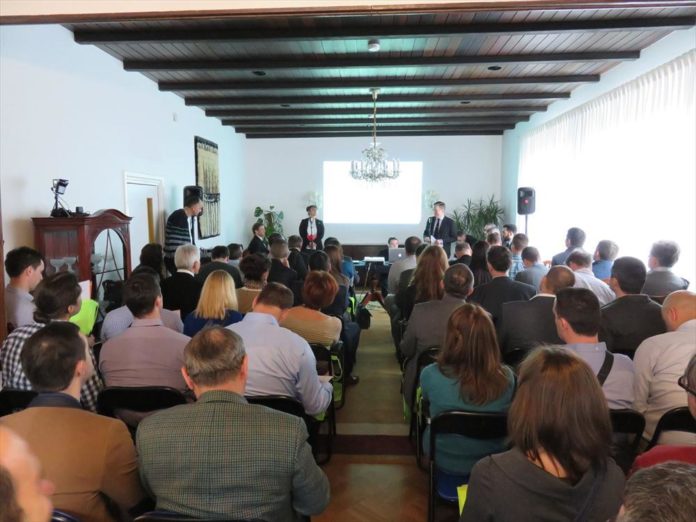On the 29th of February, the Embassy of Finland and Finnish company Infrakit organized a seminar at the Ambassador’s residence. Most important stakeholders from Serbian civil engineering sector attended this event, the purpose of which was to introduce Infrakit’s solutions and services to the local authorities and companies.
Innovative digital solution from Finland
Ambassador Pertti welcomed the audience in his opening speech and shared information on Finland as one of the World leaders in innovations and digital solutions. As perfect example of reliable and innovative Finnish company, Infrakit was awarded first place in Finnish National Category and second place in International Category by Excellence Finland, Quality Innovation of the Year awards contest.
Infrakit is specialized in BIM (Building Information digital/electronic Modeling), which means that it collects project data, transforms it to the digital form and makes it available for incomparably better usage and overview than it could be possible with traditional paper forms.
Real time, easy to use and reliable digital platform
Infrakit’s digital tool makes businesses more efficient through reduced time in which projects are completed, elimination of mistakes and conflicts, improved quality, easier workflow and financial savings. According to CEO of Infrakit, Mr. Teemu Kivimäki, this technology is widely used in everyday construction works within both structural-building and civil-infrastructure construction industries in Finland. Serbia did not advance too much if we look at usage of digital technologies in everyday work, especially in construction sector. By accepting BIM/Infrakit solution, Serbia would benefit from increased efficiency, communication and transparency in infrastructure construction. Serbian construction industry has to be prepared for very competitive international market and introduction of digital technologies into everyday activities is one of the ways to do it.
European Union Directive and BIM
EU decided to modernize public procurement rules by recommending the use of electronic tools such as BIM for public works contracts and design contests. UK, Netherlands, Denmark, Finland and Norway already require the use of BIM for publicly funded building projects.
A company that cares about its customers and stands behind its solutions
Infrakit has an office in Serbia and is looking for long-term cooperation in the Balkan region. The goal of Infrakit is to bring together all stakeholders for a better and more successful project outcome.





